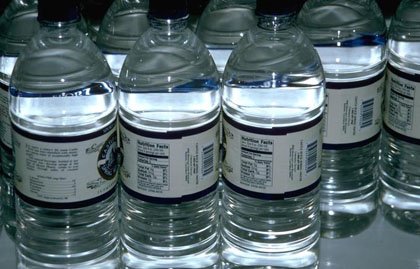Suddenly starving? Try drinking some water.
That recommendation isn’t new — but it suddenly got some serious evidence to back it up. A study of nearly 10,000 adults ages 18 to 64 shows that staying hydrated by drinking water and eating more water-loaded fruits and vegetables could help with weight management, especially if you’re overweight or obese.
“Staying hydrated is good for you no matter what, and our study suggests it may also be linked to maintaining a healthy weight,” said lead author Dr. Tammy Chang, an assistant professor in the department of family medicine at the University of Michigan Medical School. “Our findings suggest that hydration may deserve more attention when thinking about addressing obesity on a population level.”
Being dehydrated can mess with your mental, physical and emotional health. Numerous studies show attention, memory and mood can be damaged, and physical distress such as headaches, constipation and kidney problems can result.
But when it came to weight loss and gain, the science on the role of water has been murky. Some studies found drinking water helped control weight gain, yet other studies showed the opposite. Part of the problem, said Chang, was the way hydration has been measured.
“Water consumption is not an ideal measure of hydration,” explained Chang. “The amount of water it takes to stay hydrated depends on your body size and many other factors like your activity level and the climate you live in. Imagine if you were a landscaper in Arizona versus a receptionist in Michigan. The amount of water it takes to stay hydrated will be drastically different.”
Some need more water to stay hydrated
Chang and her fellow researchers at the University of Michigan looked at the topic in a new way — not how much water you drink, but how well hydrated you are when you do so. To do that, they measured the concentration of water in urine.
They found that staying hydrated — which helps your heart pump blood more efficiently to your muscles, which then makes them work more efficiently — was especially important for anyone with a body mass index (BMI) over 25, which is technically overweight and unfortunately applies to all too many of us. In fact, two out of every three Americans are overweight or obese.
“We found hydration and BMI/obesity are associated,” said Chang. “A bigger person needs more water than a smaller person to stay hydrated.”
“It could be that those people with higher BMI are more likely to be inadequately hydrated or that those that stay well hydrated are less likely to be obese.”
Signs you need more fluids
More research is needed, said Chang. But in the meantime, here are ways you can find out if your body has enough fluids.
“Feeling thirsty is the most straight forward way to know if your body needs more water,” said Chang. “Your mouth may feel dry. You may feel run down or less alert. However, I have found that my patients often confuse these symptoms with other urges like hunger or general fatigue.”
The color of your urine is another good way to tell. If your urine is light yellow, almost the color of water, you’re in good shape. If your urine is dark yellow, it’s time to drink up.
And yes, water is best. “Other beverages come with other substances like sugar in soda, or caffeine in coffee that are not recommended in large amounts,” said Chang. “Soft drinks typically contain sugar or chemical sugar substitutes that I do not recommend to my patients. Water is the best for hydration for most people.”
Here’s another easy way: Increase your intake of water-laden foods, such as cucumbers, celery, watermelon, raw broccoli and carrots, plums, apples and peaches.
“Eating fruits and vegetables with high water content is good for you not just because of the nutrients they deliver to your body, but also because they can improve your hydration.”
And they don’t come with a ton of calories. It’s a win all around.
